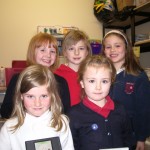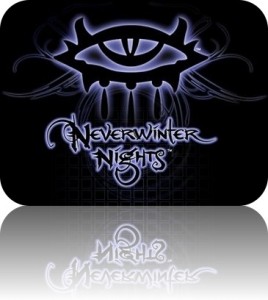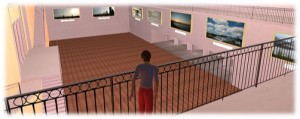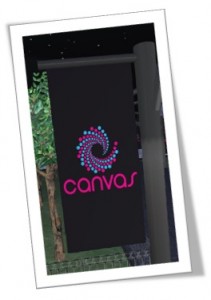

Consolarium blog
The Consolarium team would like to invite you to listen/subscribe to our fortnightly podcast or alternatively have a listen.
Now that we have an extended team at the Consolarium we are all looking forward to sharing with you the wide range of teachers and pupils in schools across Scotland who are using game based learning and other emerging technologies in their classroom practice. In episode 1 you will:
Over the last wee while I have been visiting schools to see the impact of some ongoing projects. I visited Tullos Primary in Aberdeen where a class of primary 6 children have been undertaking a Wild Earth African Safari. I popped in to see a primary 3 class in Dingwall Primary working on a Nintendogs project and then off to Alvie Primary in Kincraig near Aviemore where a composite p 3/4/5 were taking on their own African Safari.
In Tullos Primary the teacher undertaking the project spoke about her experience at an InService day and the rest of the staff were so impressed by the potential that they will be purchasing gaming technology of the ir own so games based learning can be extended throughout the school.
ir own so games based learning can be extended throughout the school.
In Dingwall primary the children have been using their Nintendogs to enhance and improve literacy. Both management and class teacher have been amazed by the impact and how the desire to write and reach an audience outside the school, through their blog, has moved the learning of all the class forward.
From Alvie Primary the teacher has tied the whole experience together as an enterprise Activity and will showcase the work for parents in a Safari afternoon. She also reckons that when the wii is returned to the Consolarium it will have a whole class of children attached to it who will not let it go!
In all classes I was met with enthusiasm and engagement and a joy about learning. In the Guardian newspaper last week Professor Stephen Heppell comments that ,
“Play is something that ICT has been bringing into learning from the very beginning. ICT in learning holds the potential to bring back playfulness and engagement…”
The Games based learning approach taps straight into this potential and, for those of us working in the Consolarium, we are lucky enough to see practical examples of the impact of this everywhere we go. Share the joy! If you and your class or school are using games based learning then please let us know and share your good practice.
More
In 2008, Susan Falconer – Computing teacher at St Augustines High School embarked on a Games Design project with S1 pupils using Neverwinter Nights. Judy Robertson from Heriot Watt University took the Neverwinter Nights game and lead the development of the Adventure Author and Fridge Magnets plugins.
Using the fantasy adventure theme in Neverwinter Nights as a contextual hub for learning, pupils engaged in a 6 week, interdisciplinary task involving a number of departments. The following departments contributed to the project in the following ways
The 2008 S1 cohort, now in S2, are continuing the Games Design theme with more subject areas taking part. Susan and the rest of the team are planning to roll the project into S3 next year.
This small slide show will give you a taste of the project.
I had the opportunity to speak briefly with Susan about the project.
Tell us about the project objectives
The aim of Curriculum for Excellence is to enhance pupil learning. By engaging pupils through the use of computer game modelling software, this projects aim was to inspire their work through an interdisciplinary approach, initially in Computer Studies and English, bringing relevance of aspects of their learning in the different departments to pupils.
In order to promote literacy, you engaged with the English department. Can you tell us about that particular link?
In English, the focus was on narrative devices used in story-telling, particularly in the Fantasy genre, improve their appreciation of the writers skill and improve their own imaginative writing. In particular, to look at setting, characterisation, plot and dialogue.
The focus in the Computing department, was to further develop their ideas and create a fantasy game with Neverwinter Nights using the setting, characterisation, plot and dialogue written in English as inspiration and guidance. Pupils developed a rich variety of new skills and enhanced their ability to learn from each other.
What was the impact of the project?
The pupils loved it. They worked without realising it and were inspired.
Attainment was raised
The pupils experienced a variety of familiar and unfamiliar challanges
What makes the project special?
We put learning and fun hand in hand. Pupils were given a worldly business experience where they had to create a product from inception to marketing, linking disciplines from many departments, showing the relevance of each.
The cross curricular project was highly commended in the recent HMIE inspection and is a fantastic example of how Games technology can really enhance the curriculum and engage with the CfE outcomes.
Look out for a more detailed look at the project, including videos, in our sharing practice section.
More
We spend a lot of time in the Consolarium discussing new and emerging technologies for learning. Recently we have been talking a lot about virtual worlds, how they can be used in education and the safety issues associated with such environments.
 We believe that it is unlikely that younger children (early years and lower primary) will ever grow into the same sort of social networking spaces that older children currently occupy. The reason for this is that most modern social networking spaces are very ‘text’ driven but the social networking spaces that younger children currently occupy are 3D immersive environments. They include places such as Club penguin, Moshi Monsters and Lego Universe. 3D immersive universes provide powerful opportunities for learning but in parallel it is vitally important that we teach young people to behave responsibly and how to keep safe in such environments.
We believe that it is unlikely that younger children (early years and lower primary) will ever grow into the same sort of social networking spaces that older children currently occupy. The reason for this is that most modern social networking spaces are very ‘text’ driven but the social networking spaces that younger children currently occupy are 3D immersive environments. They include places such as Club penguin, Moshi Monsters and Lego Universe. 3D immersive universes provide powerful opportunities for learning but in parallel it is vitally important that we teach young people to behave responsibly and how to keep safe in such environments.
We have a lot of exciting virtual world projects planned for 2010 but our current flagship project is CANVAS (Children’s Art in the Virtual Arena of Scotland). Derek has already introduced this project in an earlier blog post. The great thing about CANVAS is not only will it provide place for children to showcase and discuss their artwork but it will also include an Internet Safety Pyramid. The pyramid will provide a place to teach about responsible use and behavior within 3D worlds in a safe and secure environment.
![]()
Anyway, we are very proud of what we have achieved so far with CANVAS and we were delighted to hear that the project is up for a 2009 edublog award for the best use of a virtual world. If you think what we have created is worthwhile then why don’t you pop over to the edublog award site and vote for us now!
If you are a school in Scotland and doing any exciting work with virtual worlds we would love to hear from you.
MoreJohn Donne espoused that we are all connected and I think that we are all the better for it. Having connections whether familial, social or professional enriches all that we do and extends, supports and challenges us.
I have been thinking recently about the way my learning has changed now that I am no longer in a school setting and how much I relied on the people in my school staff to bounce ideas off, to rant to, to use the experience of and to laugh with. Now that I no longer have a physical staffroom to use I have found myself using the skills and knowledge of a different set of people in a very different way. I have a virtual staffroom, open 24hrs a day containing a set of people from all over the world, with a huge array of skills and experience which I can tap into, and who generously share their learning. I use Twitter. There, I’ve said it and it doesn’t make me a bad person!
One of the first people I was in contact with in my very early days of twitter was Caroline Breyley, the headteacher of Burravoe Primary School on the Island of Yell, the second largest of the Shetland Isles.
She and her class were considering the use of Wild Earth: African Safari for the Wii and wondered if it would be a worthwhile context for learning. Through the work they have shared with me it is clear that they have been involved in a very engaging, motivating and successful piece of learning. I had the great privilege of meeting the children online at the tail end of last week. We set up a Glowmeet and through the use of this technology children over 400 miles away, including at least one flight and a ferry, could share the fantastic work they had done with me in real time and get immediate feedback. Go and visit the Burravoe Primary School blog, read about life in their school and read the “Brilliant Story” by Charlotte in p3.
Through the use of technology available to those in Scottish Education our children have access to an immediate national audience for their work, Glow groups, glow meet, CANVAS and a host of blogs allow our children the opportunity to share their work and receive feedback . We should all be sharing our practice and seeking feedback on the work we do and providing constructive feedback on the work of others. We cannot afford to be islands.
More
Find us on